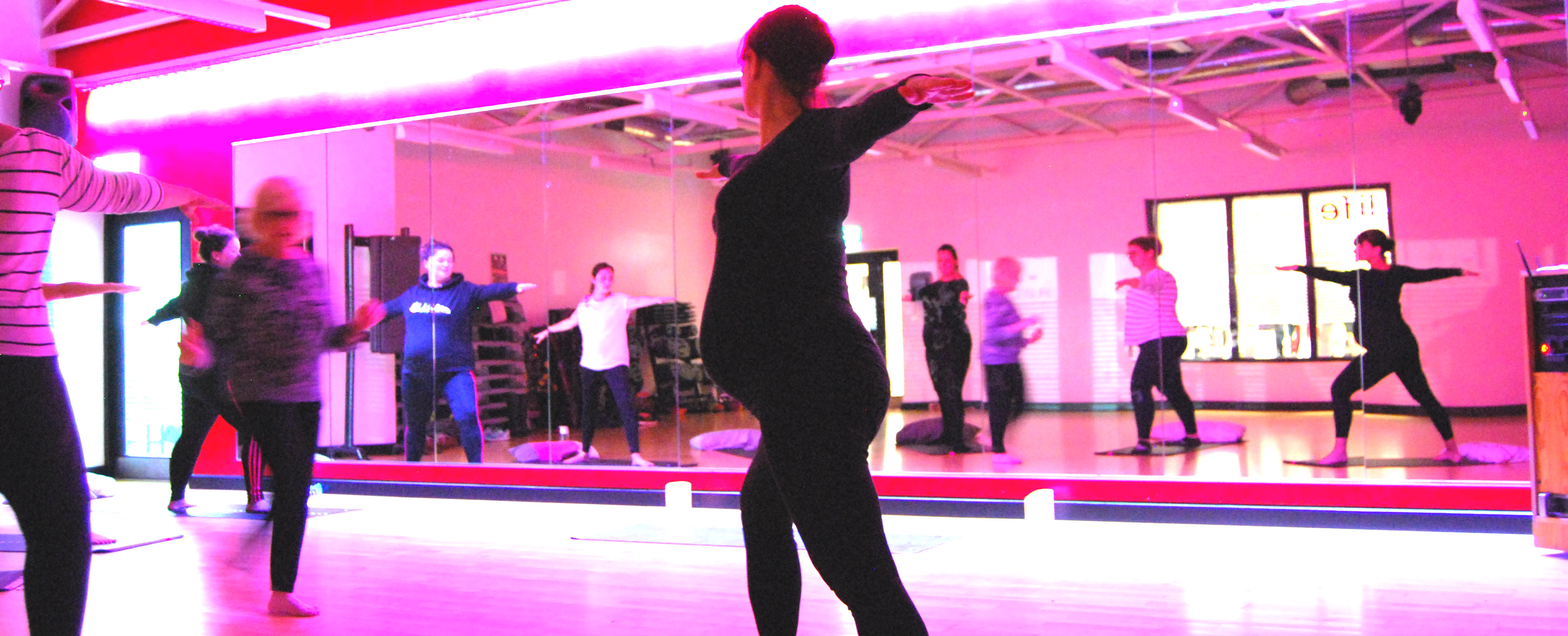Does exercise help in pregnancy and is it safe?
Exercise in pregnancy is not only safe, it comes highly recommended. The fitter you are going into and during your pregnancy, the easier it will be to cope with giving birth and getting back into shape afterwards.
Contrary to what the internet trolls say, exercise during pregnancy isn’t dangerous – however there are safe ways to move that every expectant mum should follow.
Do
Keep moving – when you’re pregnant it can be tempting to slow right down (especially if you don’t feel too great), however it’s better for you (and baby) to keep up your normal daily activities for as long as you feel comfortable. If you’re already used to exercise, then keep up with what you’re doing. However, if you aren’t very active don’t go straight into a strenuous workout – start slowly and talk to your GP, maternity team and qualified fitness professionals about the best ways to get moving.
Daily dose – when you’re pregnant a minimum of half an hour of walking a day is recommended, but if you can’t manage that, any movement is better than none. Your GP and sports professionals can advise on ways to add movement into your day, whatever your fitness level.
Time to talk – when you’re pregnant you need to be mindful of how far you’re pushing yourself. As a good rule, if you can still hold a conversation whilst exercising, then you’re at the right level. If talking becomes hard, drop the intensity.
Class act – there are some specific pregnancy exercise classes, like aqua natal and yoga, that focus on exercises to help keep you strong during pregnancy and birth. However, lots of classes are suitable if you’re expecting – just make sure that your instructor is qualified, that you tell them you’re pregnant and you let them know how pregnant you are.
Water babies – swimming is a great exercise when you’re pregnant, especially in the later months, as the water supports your increased weight. Many pools also offer aqua natal sessions with qualified instructors, and offer baby swimming classes for once you give birth.
Keep it cool – when pregnant raising the body temperature too high can be dangerous for you and the baby, so don’t work out in hot weather and make sure you keep hydrated, whatever the time of the year. During the summer months you may need to exercise at the beginning of the day or move to an air-conditioned facility.
Slow down- towards the end of your pregnancy you’ll find that you become tired more easily, especially as you’re carrying that extra weight! It’s ok to start to slow down, just keep up as much movement as you can manage without pushing yourself too hard.
Keep strong – there are some exercises that every mum-to-be (and women in general) should do to keep their pelvic and back muscles strong. Into your daily routine add pelvic tilt, stomach strengthening and pelvic floor exercises.
Enjoy yourself – being pregnant isn’t always fun (so don’t feel bad for thinking that); choose exercises, classes or sports that you enjoy and don’t feel like an absolute chore.
Don’t
Don’t fall – whereas most activities and exercise classes are suitable for mums to be, those with a chance of falling – ice skating, horse riding, gymnastics, cycling, winter sports etc -should be avoided. As should contact sports like martial arts, squash or rugby, where there’s a risk of getting hit.
Don’t lie down – don’t lie flat on your back for long periods of time, especially after you’re 16 weeks gone. The increased weight of your bump puts pressure on your main arteries and can make you faint.
Don’t scuba – your baby isn’t developed enough to deal with decompression, so can get air bubbles in its blood stream; this can be fatal.
Don’t climb – unless you are already acclimatised, don’t exercise at heights over 2,500m as there’s a risk of altitude sickness for you and baby. In severe circumstances it can be fatal for baby, mum or both.
Don’t worry – exercise is important whether we are pregnant or not. Adults should aim for 150 minutes of moderate exercise per week. However, pregnancy has massive effects on our bodies and means you may experience fatigue, sickness and pain. If you’re finding exercise hard then don’t push yourself and make yourself ill. Talk to a GP, maternity professional or a qualified fitness instructor about how you can easily add small amounts of movement into your day.
Don’t compare – every day we are bombarded with images of celebrity mums who are still beasting it in the gym in the later stages of their pregnancies, or women who have shed their baby bump in record time. Don’t fret that you can’t rep out 100 deadlifts or that your bump is still showing six months later. Work with professionals to stay, or start getting, active in a sustainable way that protects both you and baby.

